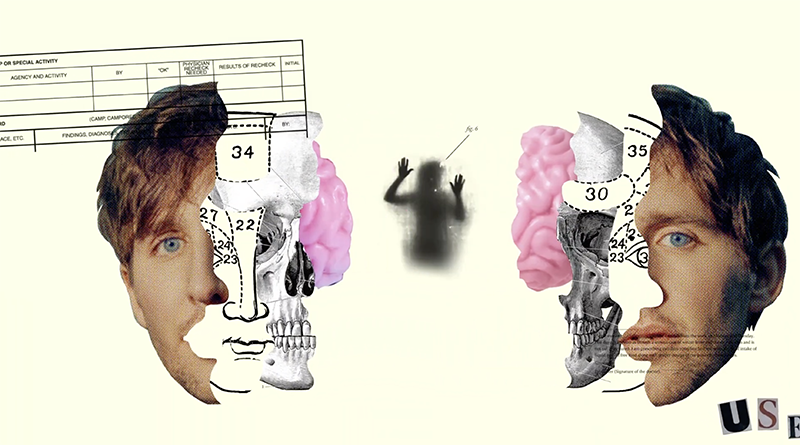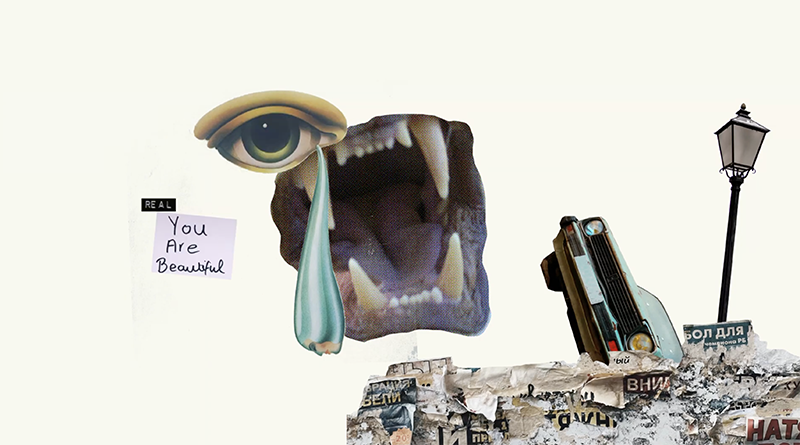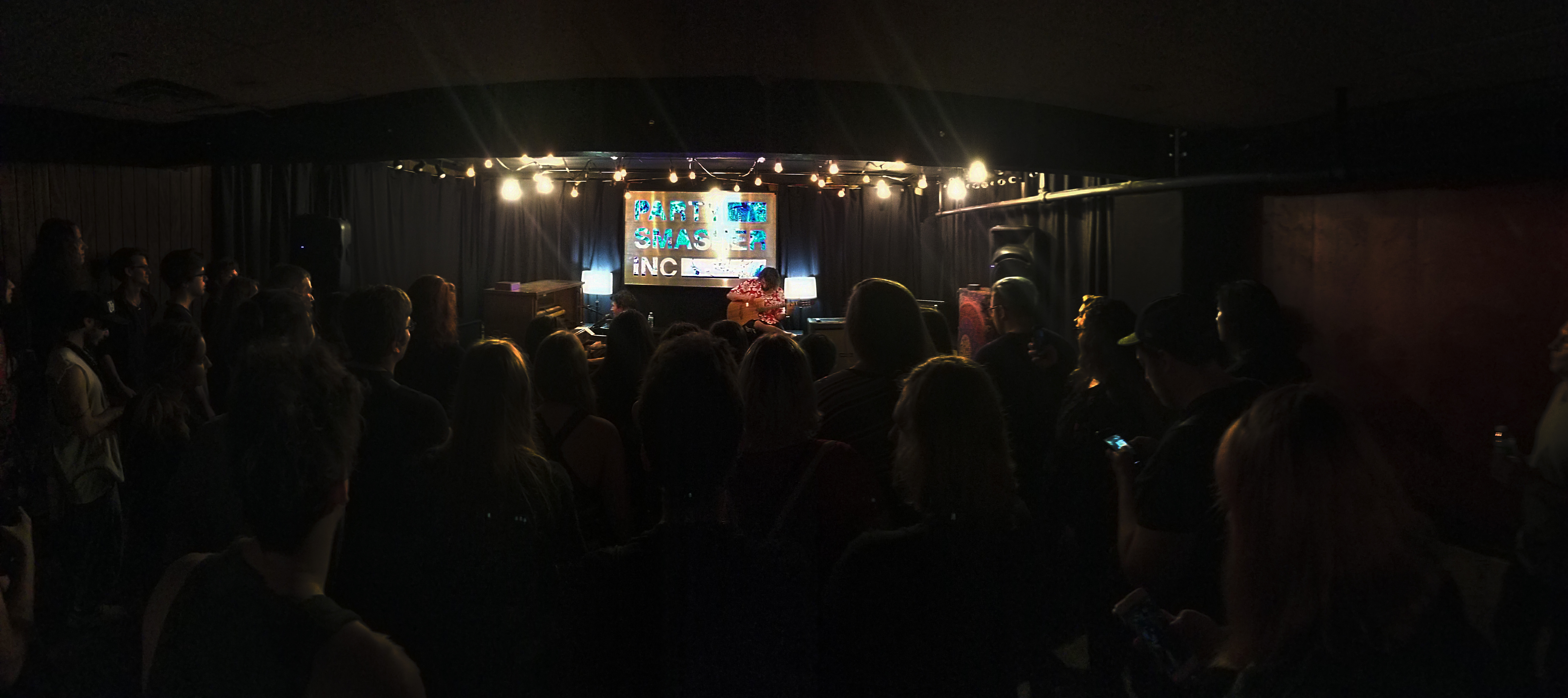Jack Manley Discusses “Smack Water”, “Tightrope Life” and His New Found Sobriety

In our exclusive interview, Jack Manley opens up about his newfound sobriety and his latest releases.
A question I like to bring up amongst friends is this:
Are creative people more susceptible to drug and alcohol addiction, or do we only think this because of their ability to express their stories in music and art, making their stories very public?
Whereas the banker, the teacher, the mom or dad tend to hide their reality of drug and alcohol dependency from everyone including themselves?
Ask yourself and your friends, and at SwitchBitch Noise, we’d like to hear your opinion.
This brings us to tell you about Jack Manley’s “Smack Water”, the new indie-rock release recounting his journey of drug addiction, and the second release “Tightrope Life” filled with appreciation and gratitude. “Smack Water” isn’t merely an exceptional indie-rock track; it’s accompanied by an artistic collage/stop animation music video that enhances its brilliance. While we’ll showcase some favorite scenes below, we strongly urge you to experience the full video via the provided link. In just 2 minutes and 58 seconds, Jack masterfully narrates the entire story with his poetic lyrics, chromatic guitar step-downs, irresistible hooks, and memorable chorus. It’s truly a treasure.
“Tightrope Life” shines as a pop rock masterpiece, offering lyrics like “It’s time to start again” that resonate deeply. Laden with appreciation and gratitude, the song’s progression of major chords elevates spirits with each step. Jack’s vocals are undeniably superb, complemented by guitars that strike a perfect balance, never overshadowing. The song’s dynamic songwriting keeps listeners captivated throughout its concise 2 minutes and 39 seconds, leaving them eager for more. Short, sweet, and irresistibly engaging.
Here is our exclusive interview with Jack:
SBN: The lyrics of “Smack Water” and “Tightrope Life” are incredibly raw and honest about grappling with addiction. What was the experience like putting those painful truths into song?
JM: The lyrical themes poured out effortlessly but the process of refinement definitely took an emotional toll. I was stuck in the hospital in treatment at the time without access to any distractions, so I had nothing but time to reflect on my actions and what I wanted to communicate. It was scary to finally acknowledge the reality of my situation. To state so directly where I was at that time, which was that I couldn’t stop spinning/using. And to really feel that, and own that as the truth, was terrifying.
SBN: You mentioned the single artwork featuring text about naloxone – the drug that saved your life. How important was that near-death experience in motivating your journey to sobriety?
JM: Yes it was really important to me to include that text in the single art. I think it’s haunting in a subtle/not so subtle way. I wouldn’t be alive today without Narcan. My overdose was impactful in my journey, but more so in hindsight and upon reflection over time. I so wish I had never used again after that event, but that wasn’t my experience. I still used several times after that which just goes to show you the severity of my disease and how sick I truly was. I think eventually realizing I still used after being revived 2 times in one night was shocking. I was running away from reality so aggressively it took a moment for my mind and spirit to really take in what happened and how I was struggling to honestly face it.
SBN: The musical arrangement with sparse production, atmospheric guitars and pounding drums seems to sonically capture the dizzying feeling you were going through. Can you discuss how you worked to create that sound?
JM: I knew I wanted a big change between the intro and the first verse, which are the same sections but with radically different treatments. To create this, I used a Electro Harmonix freeze pedal to create a drone, and I cut up Josh’s drums to create a drum loop. We also used a vintage Ibanez Dual Chorus for the lead guitar’s 8th note riff, a pedal I found years ago at a vintage guitar store in the East Village. It was a very quick intuitive process.
SBN: You said “Each track on ‘Unmeasurable Terms’ represents a different stage within the process of using or rehabilitation.” Which stage does “Tightrope Life” represent?
JM: Using, for sure. But also taking the first step towards recovery, which is admitting you’re powerless and your life has become unmanageable.
SBN: The lyrics reference the toll your addiction took on your partner. How has achieving sobriety impacted your closest relationships and ability to connect with loved ones?
JM: Being sober has made true connection possible again. I still have a lot of work to do to repair and rebuild trust, but getting well has allowed me to begin that process. And some relationships that were deeply strained, especially my closest ones, have already healed tremendously. That said, I’ve lost most of my life long friends and may never get those back due to my actions. My brother and I didn’t speak for well over a year. It’s hard man. Really hard.
SBN: With such deeply personal songwriting, was it difficult to decide to release these brutally honest tracks as your first solo venture? What made you want to share this journey so openly?
It was healing and cathartic for me to write so honestly about my experiences. I kind of couldn’t even control it: once I picked up a guitar while I was in treatment, the songs and the lyrics just started streaming out of me.
JM: For the relationships I hurt during my active addiction, I wanted to provide a reason as to why I was so lost and alone. I hoped that by being open and honest about it all in my music, those I hurt would be able to hear this music and understand what I was going through. I’ve always been able to better express myself in song than any other way. So in a way, that’s kind of a selfish motivation.
Selflessly, I hope that by sharing my story openly, others who are struggling with addiction will feel inspired to heal.
All that being said, it’s still terrifying to share these truths publicly and I second guess my decision from time to time. Then I get a beautiful email or someone speaks with me after a gig and tells me how impactful it’s been in their own story. At the end of the day that’s what it’s all about.
SBN: What advice or words from experience do you have for anyone who is personally going through or has a loved one living facing addiction today?
JM: There’s a difference between casual use and addiction. If you find yourself in a cycle of addiction, realize that you’re not bad, but sick. That you’re not living honestly, and honesty is a pre-requirement for getting better. The only way to truly live in this world is honestly. It’s also very empowering to live grounded in your own truth. In my experience, the only way to do this is through sobriety. Reach out to your loved ones and be honest about where you are. It’s only going to get worse the longer you let it go on. You deserve to get better and to live happy and free. It’s really possible for everyone.
ᐧ







